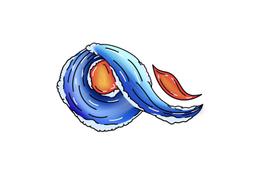Donations for the project will use in the conservation of dugongs, a species at high risk of extinction given to Marine and Coastal Resources Research Center to care for200dugongs
Period of time
Dec 12, 2024 - Jan 29, 2025Location
SDG Goals
Beneficiary groups of the project
The dugong, or "sea cow," is a species at high risk of extinction due to commercial fishing, hunting, habitat destruction, and the impacts of climate change. Seagrass meadows, which are its primary food source, are rapidly declining, putting the dugong at risk of extinction in the near future. Dugongs play a crucial role in coastal ecosystems and serve as important indicators of the overall health of marine environments.
This project will use drone technology to restore seagrass and monitor dugong migration to protect essential food sources and habitats. The data collected through drones will help develop effective conservation plans and increase local community awareness. The beneficiaries of this project include the dugongs residing in the coastal areas of the Andaman Sea and the Gulf of Thailand, particularly in regions with an estimated population of 100-200 individuals.
Social issues
Dugongs, often called "sea cows," are classified as a vulnerable species primarily due to human activities such as commercial fishing, poaching, destruction of their vital seagrass habitats, and the impacts of climate change. These gentle marine mammals play an indispensable role in coastal ecosystems and act as key indicators of overall marine health.
Seagrass meadows, which are the main food source for dugongs, are rapidly declining due to shifting climate patterns. As these underwater grasslands vanish, dugongs face the grim prospect of starvation and are forced to migrate in search of dwindling food sources. Unfortunately, because climate change is a global issue, the loss of seagrass meadows affects dugongs on a broader scale, putting them at critical risk of extinction.
Protecting dugongs is not just about saving one species; it is about preserving the delicate balance of our marine ecosystems. By investing in dugong conservation efforts, we can help safeguard these magnificent creatures for future generations, ensuring that our children and grandchildren can marvel at and learn from these ancient sea wanderers.
The fact that Below the Tides raised funds exceeding their target in the previous campaign means that the additional funds will be used to support this project.
Approaches to addressing issues
To conserve dugongs, we focus on two primary strategies: restoring their food source (seagrass) and understanding their migration patterns. Both approaches leverage drone technology to enhance efficiency and effectiveness. Restoring Seagrass: Our seagrass restoration efforts involve research-driven techniques, but drone technology plays a central role. We use drones for tasks like aerial mapping and monitoring to identify suitable areas for restoration and assess environmental conditions. Additionally, drones assist in precision seagrass planting trials, helping us maximize limited resources for optimal results. Collaborating with local communities and marine biologists, we conduct iterative experiments—guided by data from drones—to refine and adapt restoration techniques for the highest potential benefits. Understanding Migration Patterns: To study dugong migration, behavior, and health, we employ drones equipped with advanced sensors and cameras. These UAVs allow us to remotely monitor dugongs, gather detailed data on their movements, and identify critical habitats or potential threats. By incorporating this data into conservation strategies, we are able to create thorough management plans and prioritize our actions.
Operational Plan
Dec 2024 - Jun 2025
Upon successful fundraising, the Marine and Coastal Research Center will receive the equipment needed for the urgent dugong projects, ensuring their effective implementation. Monitoring and Evaluation: Drone utilization, seagrass restoration progress, and dugong data collection will be tracked using key performance indicators such as the number of drone-assisted surveys, the area of seagrass restored, and critical habitats identified. Quarterly reviews and an annual impact assessment will evaluate progress against baseline data. In order to effectively direct ongoing conservation efforts, data collection and strategy refinement will involve local communities and researchers. The results will be disseminated through reports.
Budget Plan
| Item | Quantity | Amount (THB) |
|---|---|---|
| เครื่องบินโดรน DJI Mavic 3 Thermal Surveillance Combo DJI Mavic 3 Thermal Surveillance Combo Aircraft *1, Remote controller *1, Mavic 3 Intelligent Flight Battery *4, Charging Hub *1, Mavic 3 Series Speaker *1, Power Cable *1, USB-C Cable*1, Propeller (pair) *3, USB-C Power Adapter (100W)*1, USB-C to USB-C Cable*1, Carrying Case *1, Gimbal Protector *1, Screwdriver *1 | 1ลำ | 69,000.00 |
| Power Station สถานีไฟฟ้าพกพา EcoFlow River 2 Pro Portable Power Station 800W | 2ชุด | 3,730.00 |
| Total Amount | 72,730.00 | |
| Taejai support fee (10%) | 7,273.00 | |
Project manager

Below the Tides
ผม อริณชย์ ทองแตง ชื่อ อิน อายุ 17 ปี ปัจจุบันกำลังศึกษาอยู่ที่ โรงเรียนนานาชาติ Shrewsbury International School year 12 และน้องสาวผม ด.ญ. อริสา ทองแตง ชื่อเล่น เอม อายุ 15 ปี ปัจจุบันกำลังศึกษาอยู่ที่ โรงเรียนนานาชาติ Shrewsbury International School year 11 ตั้งแต่เล็กเต่าเป็นหนึ่งในสัตว์ที่ผมชอบมากและผมก็ทำให้น้องสาวเกิดความชอบตามผมด้วย ผมเลี้ยงเต่าบกและขุดบ่อเองสำหรับเลี้ยงเต่าน้ำที่บ้าน จนกระทั่งพวกเราได้มีโอกาสไปเยี่ยมชมศูนย์อนุรักษ์พันธุ์เต่าทะเลที่เกาะมันใน เมื่อช่วงปลายเดือนธันวาคม พ.ศ.2565 กับครอบครัวและเพื่อน ได้รับความรู้ ความเข้าใจ และปัญหาของเต่าทะเลในภาพรวม และความต้องการที่ทางศูนย์อนุรักษ์พันธุ์เต่าทะเล พวกเราเลยตั้งใจจะร่วมสรรสร้างโครงการในให้เป็นที่รู้ในวงกว้าง สร้างจิตสำนึก สร้างความตระหนักรู้ เป็นตัวเชื่อมเล็กๆที่สร้างการเปลี่ยนแปลง อยากจะผันแปรความชอบส่วนตัว งานอดิเรกการเลี้ยงสัตว์ของผมและน้องสาว ให้เกิดประโยชน์ต่อสังคม ต่อสิ่งแวดล้อม ดังนั้นจึงอยากจัดตั้งโครงการเพื่อระดมทุนต่างๆที่ส่งเสริมการดูแลรักษาทรัพยากรทางน้ำของเราอันมีค่าให้คงอยู่ต่อไป จากรุ่นสู่รุ่น
View ProfileCreate a fundraising page
Collaborate to fundraise in support of this project
Create a fundraising page